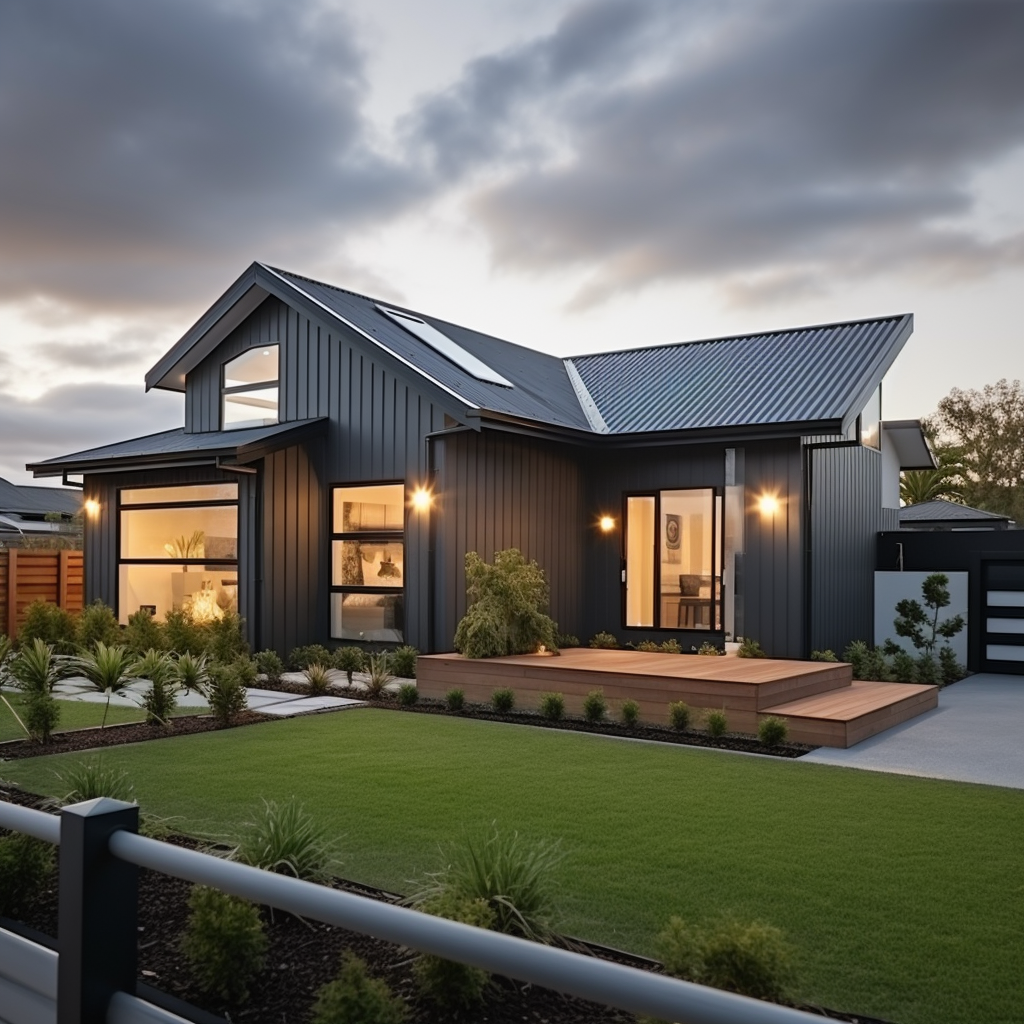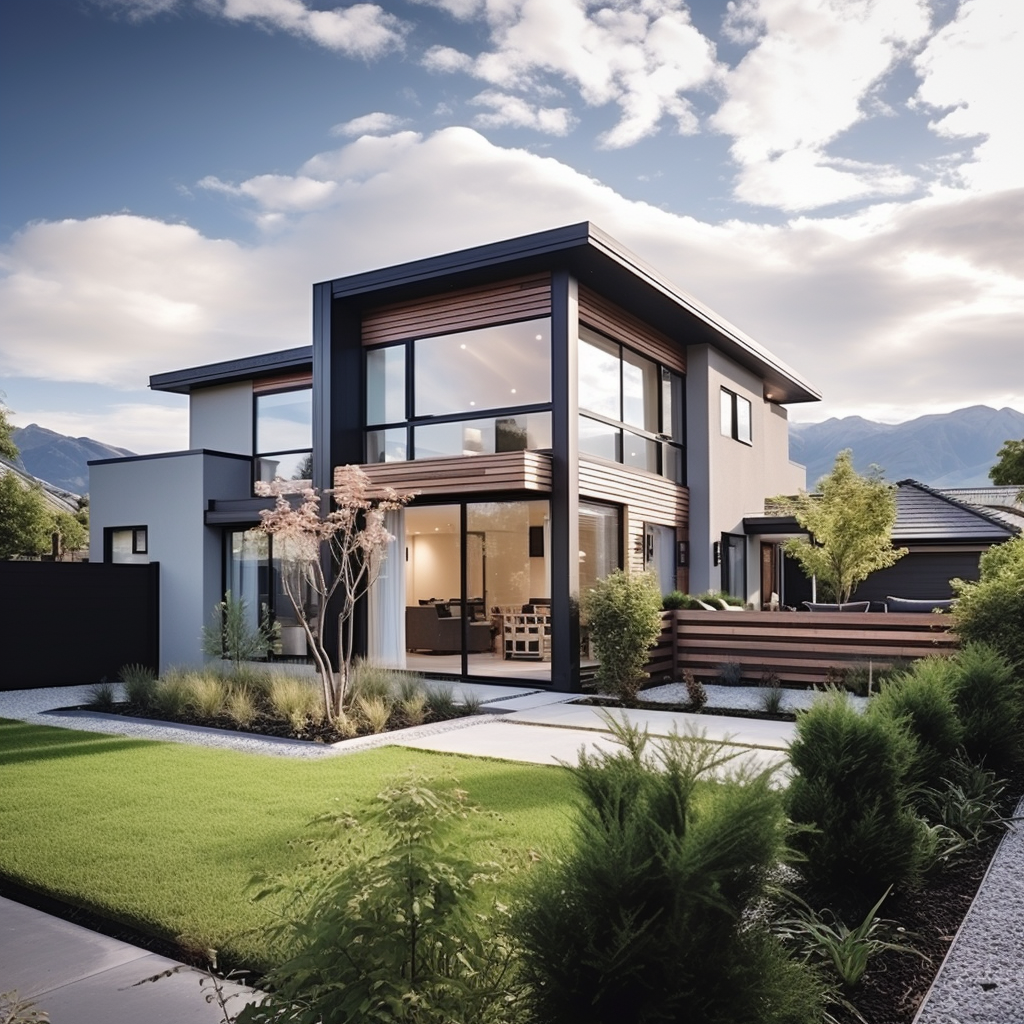Purchasing a property is a significant milestone, and in New Zealand's diverse market, it's crucial to understand the various types of homes available. Each property type comes with its own set of advantages and drawbacks, and choosing the right one can impact your lifestyle and financial future. Some of the common property types in New Zealand include standalone houses, townhouses, apartments, and units. Standalone houses offer privacy and the freedom to make changes, but they can be more expensive and require more maintenance. Townhouses and units are often more affordable and low-maintenance, but you may have less control over renovations. Apartments are a popular choice in urban areas, offering convenience and shared amenities, but they can have higher body corporate fees. Consider your budget, lifestyle preferences, and long-term goals when deciding on the property type that best suits your needs.
Standalone Homes: A Closer Look
Standalone homes, often referred to as detached houses, are a popular choice among New Zealanders, particularly families. These properties are synonymous with the traditional Kiwi dream - affording the luxury of space and an unrivalled level of privacy.
Whether you're looking at the bustling suburbs of Auckland or the tranquil landscapes of Canterbury and Otago, standalone homes are a common sight. They're dotted throughout Aotearoa, adding to its unique architectural landscape.
The Upside
There are considerable benefits associated with owning a standalone home. Here's a look at some key advantages:
- Privacy: Standalone homes offer an oasis of tranquility. With no shared walls or immediate neighbours, homeowners can enjoy undisturbed peace and quiet.
- Space: These properties typically offer more living space - both indoor and outdoor. This can translate to larger rooms, extra storage areas, and often a garden or backyard - ideal for children’s playtime or hosting memorable Kiwi barbecues.
- Freedom: Ownership of a standalone home comes with greater freedom to personalise your space. Whether you yearn for a new deck, desire a fresh coat of paint, or plan an extension, there's usually fewer restrictions compared to other property types.
The Downside
However, it's essential to weigh up the potential drawbacks before purchasing a standalone home:
- Maintenance: As the sole owner, all maintenance work falls on your shoulders - from mowing the lawn to fixing the roof. This can require significant time and financial investment.
- Cost: Standalone homes generally command higher prices due to their size and the land they occupy. Additionally, running costs like utilities and maintenance could also be higher than other property types.
- Location: These homes are often situated further from city centres. While this might appeal if you're seeking tranquility, consider the potential commute times to workplaces, schools, and amenities.
Standalone homes offer a range of benefits that align with the lifestyle aspirations of many Kiwis. However, it's essential to consider your personal needs, financial situation, and long-term goals when selecting a property type.
Townhouses
Townhouses strike a balance between the seclusion of standalone homes and the convenience of communal living. Sharing one or two walls with neighbours, these multi-floor homes often come with shared amenities like gardens or pools. They're becoming increasingly favoured in urban areas where land scarcity makes them a more affordable entry point into the housing market.
Pros:
- Community Living: Access to shared amenities and a sense of community.
- Less Maintenance: External maintenance is usually handled by body corporate.
- Affordability: More budget-friendly than standalone homes in similar locations.
Cons:
- Strata Fees: Ongoing fees for communal area maintenance can be costly.
- Privacy: Less privacy compared to standalone homes due to shared walls.
- Space Constraints: Smaller yard space and potential for less storage.
Apartments
Apartments are ubiquitous in New Zealand's cityscapes, especially in Wellington and Auckland. They range from compact studios to expansive luxury units. Offering proximity to city amenities, workplaces, and entertainment options, they cater well to individuals or small families who enjoy urban living without the fuss of extensive property upkeep.
Pros:
- Convenience: Close to urban conveniences like shops, restaurants, and public transport.
- Low Maintenance: No need to worry about landscaping or external repairs.
- Security: Many apartment buildings offer added security features.
Cons:
- Space Limitations: Smaller living areas with less personal outdoor space.
- Body Corporate Fees: Regular fees for building maintenance can add up.
- Noise Levels: Potential for more noise from neighbours or the street.
Lifestyle Properties
Lifestyle properties offer an escape to more spacious rural settings. Perfect for those yearning for a connection with nature or hobby farming aspirations. Regions such as Bay of Plenty and Hawke’s Bay are sought-after locations providing an idyllic balance between country charm and proximity to necessary services.
Pros:
- Land Size: Ample space for gardening, farming, or animal husbandry.
- Tranquility: A peaceful environment away from urban hustle.
- Lifestyle Choice: Ideal for those seeking self-sufficiency or space for hobbies.
Cons:
- Accessibility: Often located further from city centres and amenities.
- Maintenance: Larger land size means more upkeep responsibilities.
- Transportation Costs: Owning a vehicle is typically necessary, adding transport costs.
Tiny Houses
Tiny houses encapsulate minimalist living at its finest. These pint-sized dwellings are perfect for those looking to downsize or enter the housing market affordably. Often custom-built with eco-friendly considerations in mind, they appeal to those prioritising simplicity over square footage.
Pros:
- Affordability: Cheaper than traditional housing options.
- Sustainability: Smaller ecological footprint due to size and design choices.
- Mobility: Some tiny houses can be moved if built on trailers.
Cons:
- Space Restrictions: Extremely limited living space can be challenging.
- Legal Issues: Zoning laws can complicate where tiny houses can be placed legally.
- Resale Value: Tiny houses may not appreciate as much as traditional homes.
Units/Flats
Units or flats resemble apartments but usually form part of smaller complexes. These residences are found throughout suburban areas or on the fringes of cities offering an economical alternative with fewer amenities than larger apartment buildings but retaining convenience.
Pros:
- Affordability: Often less expensive than houses in the same area.
- Community Feeling: Smaller complexes may foster closer neighbour relationships.
Pros:
Body Corporate Fees: Similar to apartments with ongoing maintenance costs.
Noise Potential: Shared walls mean a higher likelihood of noise disturbances.
Limited Outdoor Space: Units or flats often have limited or no private outdoor areas.
Lack of Customization: Renters or owners may have limited ability to modify the property to suit their preferences.
-1704306197.png)




